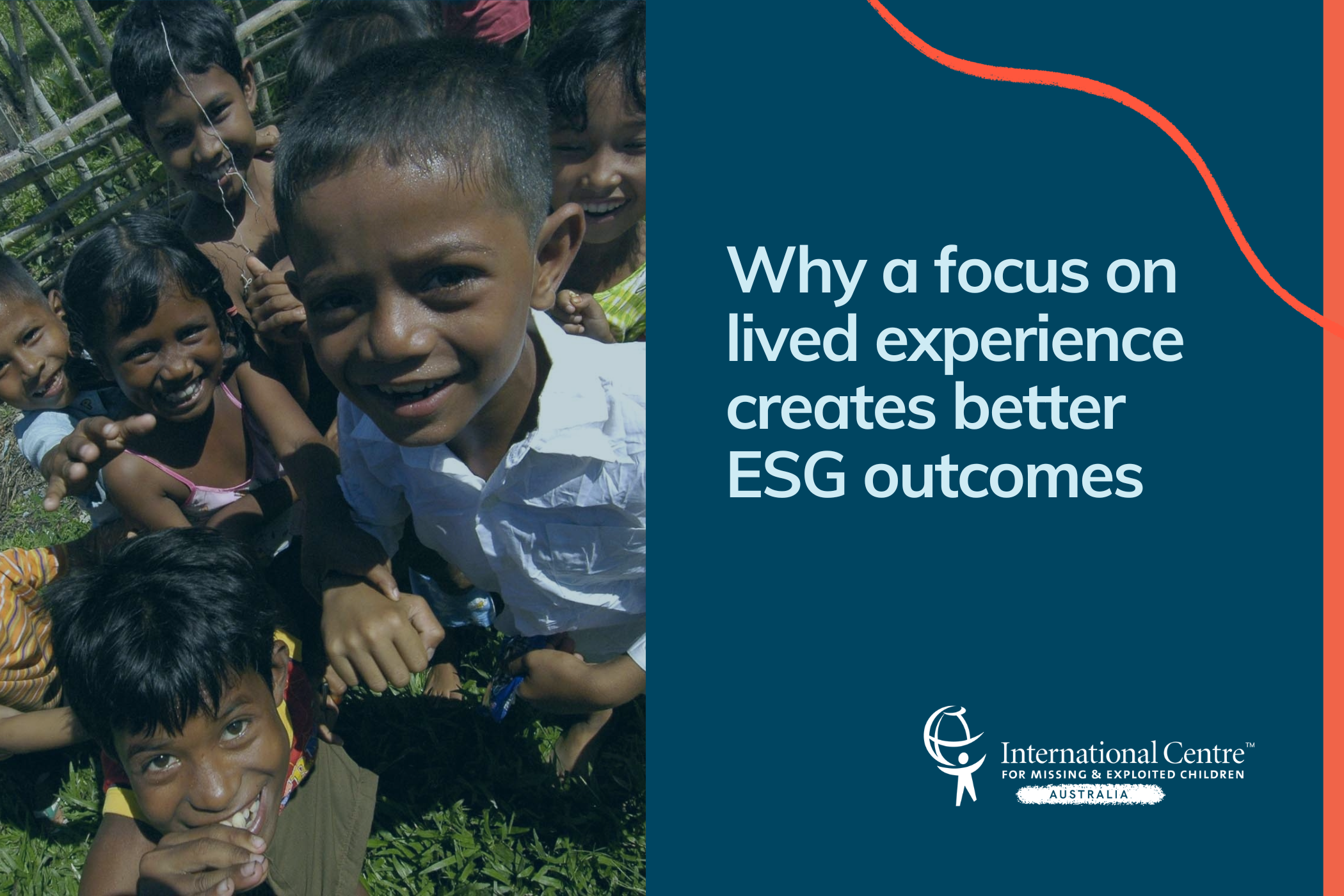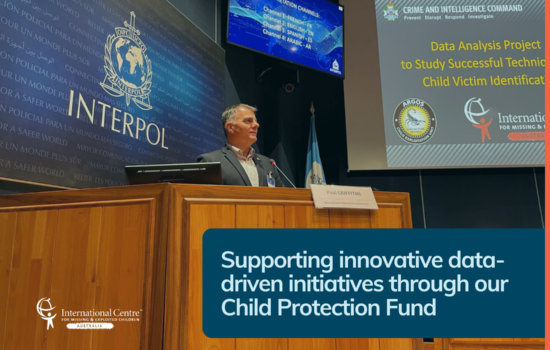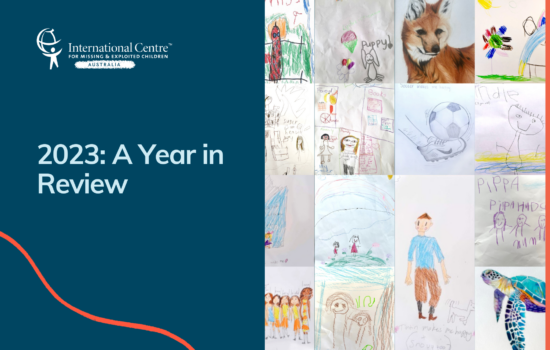Why a focus on lived experience creates better ESG outcomes

Ahead of presenting at the COBA Financial Crimes Symposium on 12th July, ICMEC Australia Chair, Kara Nicholls, shares her thoughts about how ESG practices achieve better outcomes when approached from the perspective of those who have the lived experience of the problems that organisations are trying to help solve, especially in the case of child sexual exploitation.
The corporate framework set out for Environment, Social and Governance issues has traditionally been created very much from the perspective of the organisation. One of the primary reasons for this is that mitigation of risk is a major concern for organisations, especially in the world of banking and finance.
Having managed the governance function of a major financial institution following the conclusion of the Banking Royal Commission, I have experienced first-hand the role that risk management plays in organisational processes and priorities in relation to ESG issues.
From a risk and governance perspective, a bank or financial institution needs to have effective and adequate systems and processes for a myriad of matters, including: ensuring that they aren’t party to or facilitating criminal activities; regulatory engagement such as identifying and reporting suspicious transactions to AUSTRAC; and protecting customers’ financial assets and interests. Often, when these processes are considered primarily through a risk mitigation and regulation lens, it is understandable how they may lose sight of the human aspect of why these activities are important, and the impact they have on people and the communities in which they operate.
By flipping the switch on how we consider ESG frameworks and processes, the results can be impactful, and life changing. Approaching these issues with a strong people, community and ESG lens can change how an organisation plans, prepares and responds, leading to significantly better outcomes for customers, the organisation, its communities and the economy.
And nothing illustrates this better than how a financial institution manages the detection and reporting of child sexual exploitation (CSE). CSE facilitated online is one of the fastest growing crimes globally. And like it or not, financial institutions play a vital and pivotal role in protecting children from harm.
With our reliance on technology and access to the internet continuing to increase, the methods and opportunities to harm children are also growing at scale. The traditional public perception of this crime, somewhat perpetuated by the media coverage of the Royal Commission into the Institutional Response to Child Sexual Abuse, is centred on a certain stereotype. However, the victims and perpetrators of this crime come from all walks of life, which means both can be customers of any financial institution.
The changing nature of sexual crimes against children, along with the opportunities for new ways to abuse and exploit children through technology and online connection, has increased the necessity for banks and financial institutions to ensure that they remain vigilant, agile and engaged with the problem and become part of the solution. Crimes such as live streaming of abuse, coerced self-generated child sexual abuse material, child sextortion and more are on the rise. These crimes can all leave a digital financial footprint.
Unlike other financial crimes, such as money laundering for example, detecting child sexual exploitation in a financial context is difficult. The low value, often seemingly innocuous transactions are hard to pinpoint and identify.
The consequences of CSE for victims and their families can be tragically swift and devastatingly long lasting, impacting almost every aspect of their, and their family’s lives. This is the unquantifiable cost of CSE to the victim-survivor. There is also the impact on our health and medical systems and the economy.
We need to re-imagine how we consider ESG as we know that the expectations of our customers and our members/shareholders are high. We need to earn and retain our social licence to operate. It is not only important, it is crucial that we embed into our ESG approach, systems and processes thinking that puts prevention and the victim-survivor at the centre, as then we are striving to meet and exceed our stakeholders’ expectations, and seek to deliver the long-term positive social impact for customers and employees.
The true cost and savings of an authentic approach to ESG practices is ultimately a human one. And this is at the heart of every customer-owned banking institution.
Kara Nicholls is the Chair of ICMEC Australia. She has over 27 years’ experience in senior executive positions across ASX listed, private entity, startup and NFP organisations, and has held both corporate and NFP board Chair positions. This article was first published by COBA for their members, and is reproduced with permission.



